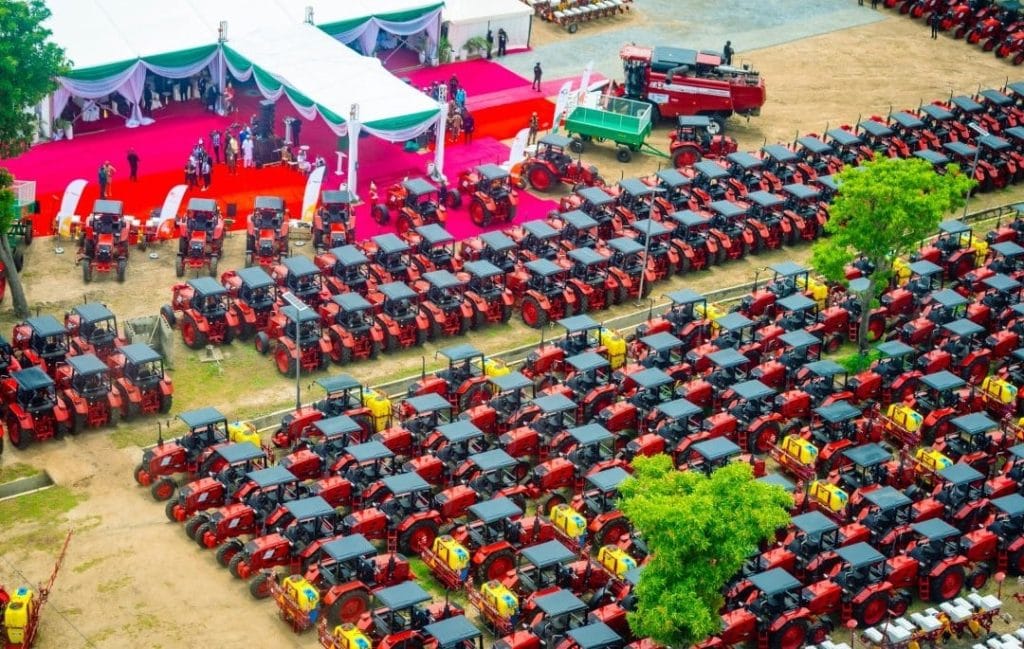Nigeria’s National Orientation Agency (NOA) has announced that President Bola Tinubu’s agricultural reforms have led to the creation of 60,000 jobs by June 2025. The agency highlighted the impact of the Renewed Hope Agricultural Mechanization Program (RHAMP) in its latest weekly bulletin.
According to NOA, the RHAMP initiative aims to tackle key challenges such as low productivity, rising food prices and post-harvest losses. The programme is built on four pillars: mechanization and technology adoption, rural infrastructure development, youth participation and international cooperation.
The RHAMP, which was launched on June 23, involves the distribution of 2,000 tractors and 9,022 pieces of specialized equipment, described by NOA as the largest mechanization initiative in Nigeria’s history. The equipment package includes various tractor models, combine harvesters, bulldozers, mobile workshops and farm implements such as ploughs, harrows and seed drills.
The project also includes 9,000 spare parts kits under the 2024-2029 bilateral partnership with Belarus. It follows a service provider model to provide access to machinery to smallholder farmers through rentals and cooperatives.
The programme is expected to cultivate 550,000 hectares of farmland, yield over 2 million metric tons of staple crops, create 16,000 direct jobs and benefit over half a million farming households.
Nigerian Minister of Agriculture and Food Security, Abubakar Kyari, stated that RHAMP will increase Nigeria’s mechanization rate from 0.27 horsepower per hectare to 2.5 horsepower, aligning the country with global standards. He noted that the programme integrates GPS tracking for the machinery, mandatory operator training and research allocations to encourage innovation.
NOA also explained that future phases of the Belarus partnership will include building grain storage facilities, addressing a major weakness in the value chain that leads to the loss of 30% of harvested grain.
The administration is also encouraging private investment in agro-processing through tax incentives and import duty exemptions. It is currently negotiating trade agreements to increase exports of Nigerian agricultural products.
The agency noted that food prices have been falling steadily since early 2025, attributing this to expanded cultivation efforts under the mechanization program. The government’s agricultural interventions have advanced food security, empowered farmers and contributed to broader economic development, the NOA said.



